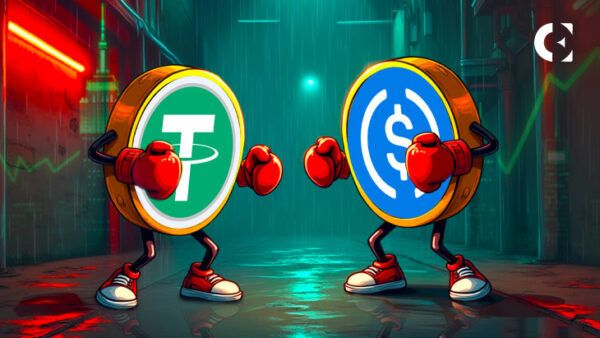- Standard Chartered projects more than $1 trillion may leave emerging-market banks for stablecoins by 2028, signaling a structural move toward digital dollar savings in economies hit by inflation.
- USDT and USDC are becoming the new dollar accounts for savers in countries like Egypt, India, and Brazil as people search for stability their local banks no longer guarantee.
- Banks face shrinking deposits but a new opportunity to pivot into custody, settlement, and treasury services as stablecoins take root in everyday finance.
Standard Chartered expects one of the largest shifts in global savings this decade.
In a research report the bank said more than $1 trillion dollars in emerging-market bank deposits could flow into US-dollar-pegged stablecoins by 2028, reflecting how people are rethinking where they store value in an inflation-heavy world.
Stablecoins Are Becoming Dollar Savings Accounts
In many countries where local currencies lose value quickly, people now treat stablecoins as the safest way to hold dollars.
Analysts Geoffrey Kendrick and Madhur Jha wrote that these tokens act like digital savings accounts that can be opened from a phone. They expect the global stablecoin market to reach about $2 trillion dollars by 2028, with two-thirds of that held by savers in emerging markets.
Live data from CoinMarketCap show Tether (USDT) near $177 billion in circulation and USD Coin (USDC) around $75 billion, evidence that most digital-dollar demand is still concentrated in a few major issuers.
Related: Stablecoin Infrastructure Gets $50M Investment as Foresight Ventures Steps In
Where the Shift May Hit Hardest
Emerging markets such as Egypt, Pakistan, Bangladesh, Colombia, and Sri Lanka are viewed as the most exposed to potential deposit outflows. Others like Turkey, India, China, Brazil, South Africa, and Kenya may also experience rising adoption.
Related: Tether Exec Touts Stablecoins for Remittances as ‘Stablecoin Summer’ Heats Up
Even under the U.S. Stablecoin GENIUS Act, available through Congress.gov, which limits yield on regulated tokens, Standard Chartered expects adoption to keep rising because most users care more about stability than return.
Structural Shift in Global Savings
The report suggests that stablecoin savings could surge from about $173 billion today to $1.22 trillion by 2028. This increase implies a significant migration of savings from banks to blockchain-based systems. The researchers expect the market to evolve from a few large wallets to millions of smaller accounts, reflecting broader retail participation.
This trend could challenge traditional banking models. As deposits shift, banks may lose fee income from foreign exchange and payments. However, they could adapt by integrating stablecoin custody, settlement, and treasury services into their operations.
Governments and Companies Try to Catch Up
Central banks are accelerating digital-currency pilots and instant-payment projects to keep local money competitive. In Sub-Saharan Africa, where mobile money already dominates, regulators see stablecoins as the logical next step.
Private firms are also expanding infrastructure. Tether, Coinbase, and Stripe are scaling stablecoin payment rails, while emerging-market platforms such as Plasma are building lower-cost blockchain networks for cross-border transfers.
Why This Matters
If Standard Chartered’s projection holds, the world could witness a quiet trillion-dollar migration of savings from banks to blockchain wallets. Stablecoins would evolve from trading tools into a digital extension of the U.S. dollar, giving millions of people access to dollar-denominated savings without needing a branch or banker.
Disclaimer: The information presented in this article is for informational and educational purposes only. The article does not constitute financial advice or advice of any kind. Coin Edition is not responsible for any losses incurred as a result of the utilization of content, products, or services mentioned. Readers are advised to exercise caution before taking any action related to the company.







